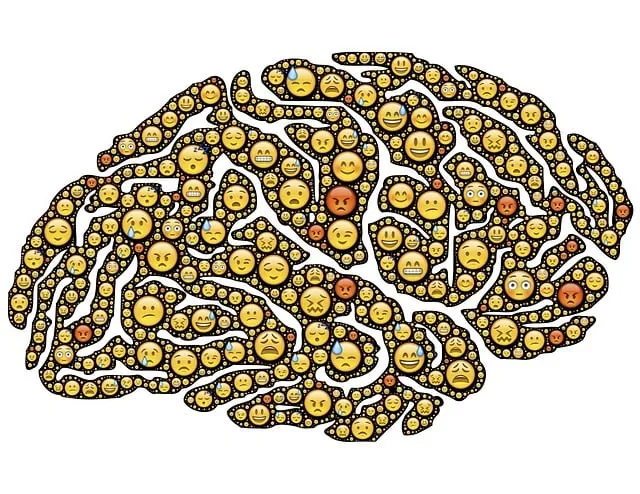The Greenwood Village Kaiser Permanente behavioral health center prioritizes mental health data analysis for improved patient care. By utilizing advanced technology like Electronic Health Records, innovative tools, and interpretive techniques, the center identifies trends, develops targeted interventions, and enhances patient outcomes. This data-driven approach, balanced with privacy considerations, enables personalized treatment plans, stress management workshops, and public awareness campaigns. The center's leadership in mental health data analysis revolutionizes care, incorporating machine learning, AI, and Inner Strength Development programs to transform support systems and improve community mental health literacy.
Mental health data analysis is a growing field, especially with advancements in technology. This comprehensive guide explores various aspects of analyzing and interpreting mental health data, from understanding complex datasets to leveraging cutting-edge tools. We delve into the role of technology in collection and analysis, highlighting innovative methods at the Greenwood Village Kaiser Permanente behavioral health center. Additionally, we discuss ethical considerations and future trends, offering insights that can shape effective data interpretation practices.
- Understanding Mental Health Data: A Comprehensive Overview
- The Role of Technology in Collection and Analysis
- Interpretive Techniques for Behavioral Health Insights
- Applications at the Greenwood Village Kaiser Permanente Center
- Ethical Considerations and Future Trends in Data Interpretation
Understanding Mental Health Data: A Comprehensive Overview

Mental health data analysis involves gathering, interpreting, and making sense of information to gain insights into individuals’ or populations’ psychological well-being. This process is essential for organizations like the Greenwood Village Kaiser Permanente behavioral health center in providing effective care. By analyzing trends, patterns, and correlations within mental health data, healthcare professionals can identify areas for improvement, develop targeted interventions, and ultimately enhance patient outcomes.
At the heart of this analysis lies understanding the nuances of emotional intelligence, self-care practices, and stress management workshops. These factors play a pivotal role in mental health, influencing an individual’s ability to recognize, manage, and adapt to their emotions. The Greenwood Village Kaiser Permanente behavioral health center, through rigorous data interpretation, can tailor programs and services to address these aspects holistically, fostering a supportive environment that promotes emotional well-being and encourages sustainable self-care practices among its patients.
The Role of Technology in Collection and Analysis

The digital revolution has significantly transformed mental health care, and Greenwood Village Kaiser Permanente behavioral health center is at the forefront of this change. Advanced technology plays a pivotal role in both the collection and analysis of sensitive mental health data. Electronic health records (EHRs) streamline the documentation process, making it more efficient and accurate compared to traditional paper-based methods. This digital shift enables healthcare providers at the Greenwood Village facility to access comprehensive patient profiles instantly, facilitating personalized treatment plans.
Furthermore, innovative tools and software are being utilized for in-depth data analysis. These technologies aid in identifying patterns, trends, and correlations within vast datasets, contributing to evidence-based practices. For instance, machine learning algorithms can predict relapsing episodes or identify high-risk patients, enabling early interventions. The integration of technology not only enhances the quality of care but also facilitates the development of effective coping skills and emotional intelligence programs through data-driven insights, ultimately improving patient outcomes and public awareness campaigns related to mental health.
Interpretive Techniques for Behavioral Health Insights

At the Greenwood Village Kaiser Permanente behavioral health center, interpretive techniques play a pivotal role in uncovering valuable insights from mental health data. Advanced analytics and qualitative analysis methods are employed to understand patient journeys, identify trends, and tailor interventions effectively. By delving into demographic information, treatment outcomes, and patient-reported experiences, healthcare professionals gain profound knowledge about the complex nature of behavioral health.
These techniques facilitate a comprehensive view, enabling practitioners at the Greenwood Village center to enhance their approach. For instance, analyzing self-esteem improvement data can reveal the efficacy of specific therapies or exercises, such as Self-Awareness Exercises and Coping Skills Development programs. This allows for data-driven decisions, ensuring personalized care that addresses individual needs and promotes positive behavioral changes.
Applications at the Greenwood Village Kaiser Permanente Center

The Greenwood Village Kaiser Permanente behavioral health center has been at the forefront of leveraging mental health data for improved patient care and outcomes. Here, advanced data analysis techniques are integrated into everyday operations to gain valuable insights into patient populations. This approach, grounded in Mind Over Matter Principles, enables healthcare providers to personalize treatment plans, enhancing their effectiveness. By analyzing trends and patterns within the collected data, the center can identify specific needs and design targeted interventions.
Furthermore, the center utilizes these analyses to support the development of impactful Public Awareness Campaigns and Mental Health Education Programs. Data-driven insights help in crafting messages that resonate with diverse communities, fostering open conversations about mental health. This strategic approach not only increases public awareness but also equips individuals with knowledge and tools to manage their well-being proactively.
Ethical Considerations and Future Trends in Data Interpretation

As mental health data analysis becomes increasingly sophisticated, ethical considerations gain paramount importance. The Greenwood Village Kaiser Permanente behavioral health center underscores the need for responsible and transparent handling of sensitive patient information. Balancing privacy and data accessibility is a delicate act, requiring robust security measures to protect individuals while enabling researchers and healthcare providers to derive meaningful insights that drive treatment improvements.
Looking ahead, future trends in mental health data interpretation promise transformative advancements. Incorporating machine learning algorithms and artificial intelligence can lead to personalized interventions, such as tailored Mood Management programs based on individual profiles. Moreover, the emphasis on Inner Strength Development through Mental Health Education Programs Design could revolutionize support systems, empowering individuals with coping strategies for lifelong well-being. These developments hold the potential to significantly enhance patient outcomes and overall mental health landscape.
Mental health data analysis has evolved significantly, thanks to technological advancements and innovative interpretive techniques. As seen at the Greenwood Village Kaiser Permanente behavioral health center, these methods enable comprehensive insights into patient behaviors and outcomes. Moving forward, ethical considerations will continue to shape the responsible use of mental health data, while ongoing research promises even more sophisticated analysis tools. By leveraging these developments, healthcare providers can offer personalized, effective care tailored to individual needs.


